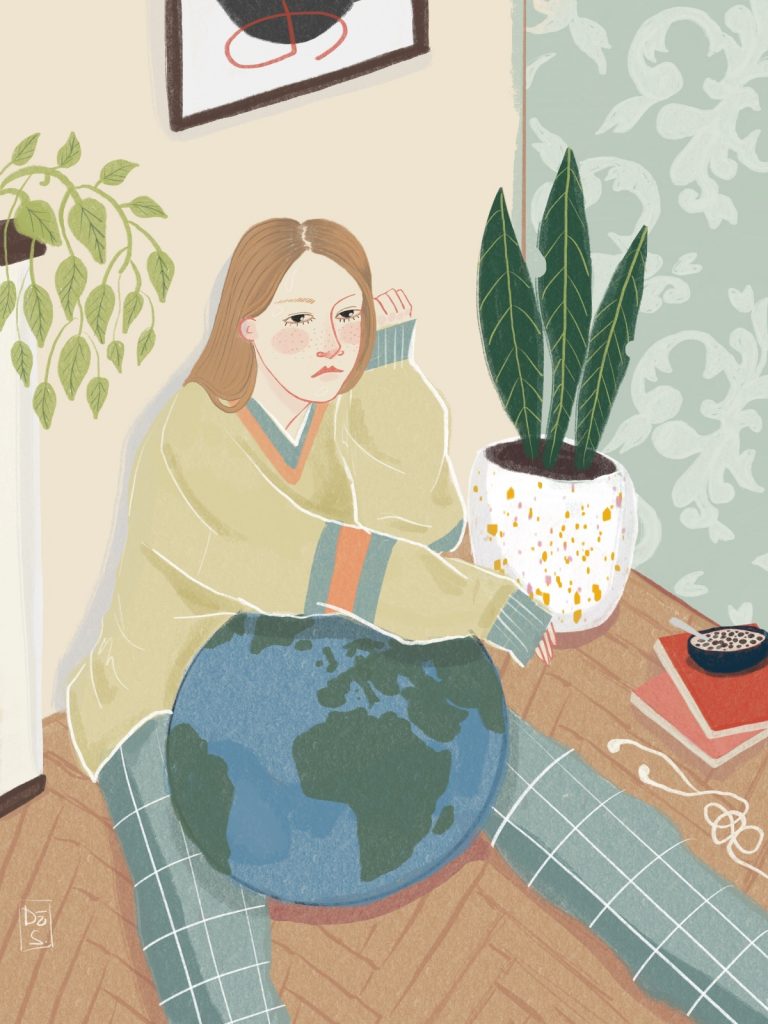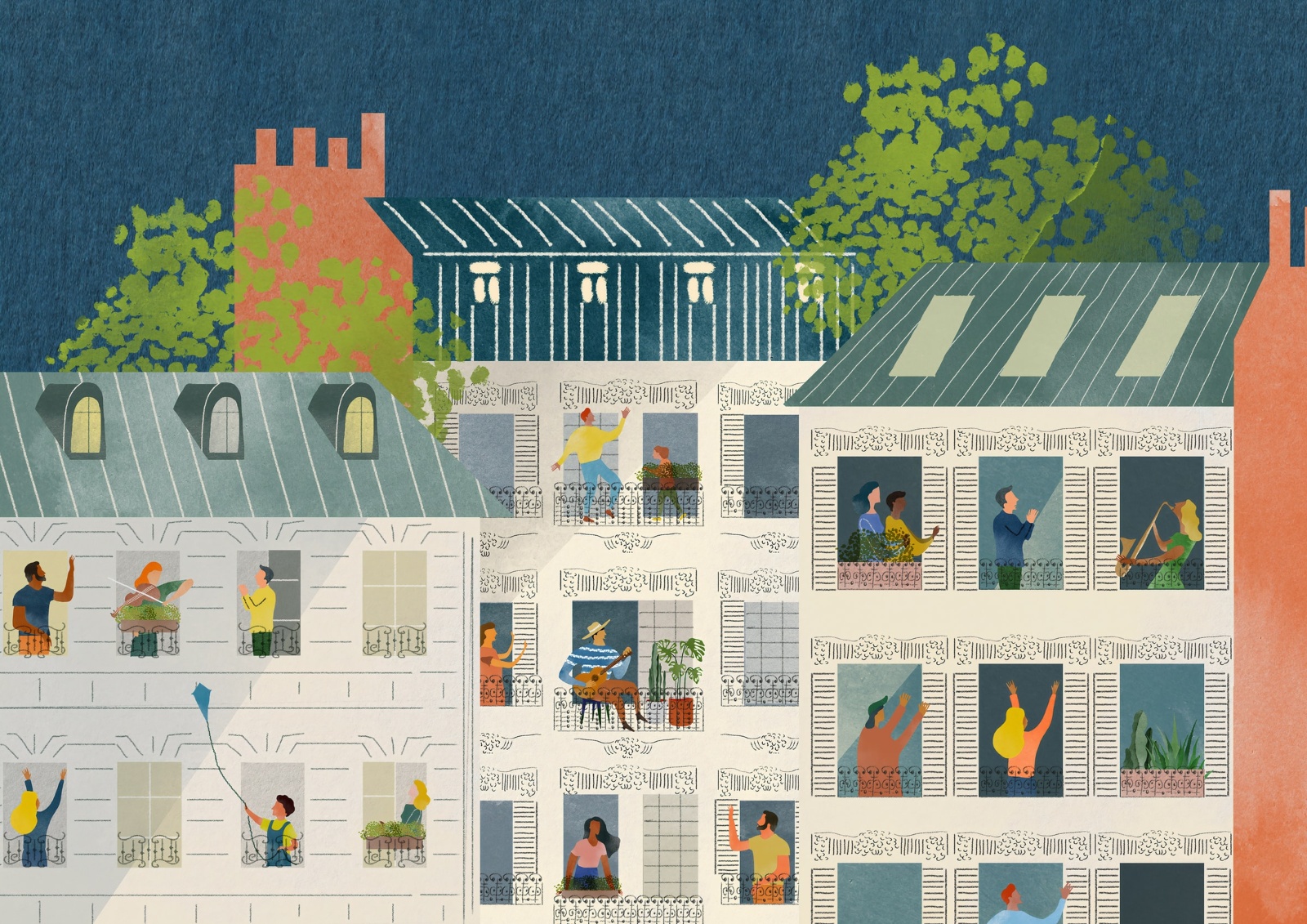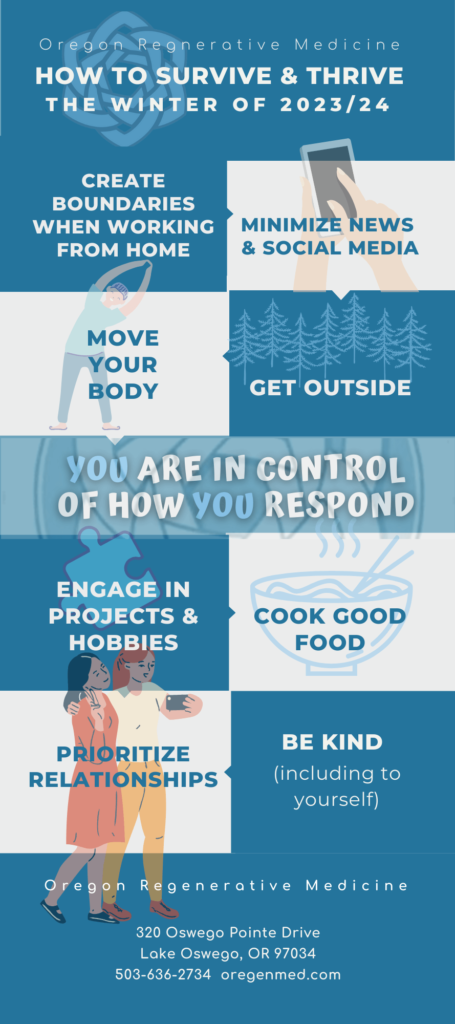The upcoming 2023-24 winter is going to be a doozy. With a little planning, your winter can be a time of rejuvenation and replenishment.

The spring of 2020 caught most of us by surprise. Few regular citizens were prepared materially and psychologically for what an economic and social lockdown entailed. The winter of 2021 was a slow reckoning that this pandemic was not going to go away soon. And the winter of 2022 was a huge improvement, after vaccinations significantly reduced the incidence and severity of COVID-19 infection. Now we are in the fall of 2023, and there are likely no more big surprises regarding the pandemic as we head into the 2023-24 winter.
Coping strategies range from healthy to unhealthy. By planning ahead, we can set ourselves up for engaging in behaviors that lead to flourishing and wellness rather than self-destruction. You are in control of how you respond.
- Create boundaries from “work-from-home”. If you are fortunate enough to have a space for a separate office in your home, then create boundaries and remember to engage in rituals that create a break in your day when work is finished and you put away your work tasks: leave the house (or your office) for a walk, or engage in exercise. Even just taking a shower and a change clothes, light incense, or brewing a cup of tea can create healthy boundaries between work and the rest of your life.
- Minimize or eliminate engagement in the news and social media. News and social media is fueled by controversy, fear, and division. It is captivating precisely because it leverages deep-seated psychological mechanisms built around urgency and tribalism. Knowing the minutiae of matters that you’re not directly involved in just so you can be angry, offended, or self-righteous about them is not a good use of your energy. We know that social media algorithms feed us content that is more likely to make us upset. Why waste your time in that space? Give yourself 5-10 minutes per day maximum to scan headlines and social media if you want to stay up to date. Even better, catch up with social media and the news weekly instead of daily.
- Move your body. Physical exertion is one of the best ways to decompress and we need to do it regularly. There is no shortage of workout videos to guide you and you don’t need any equipment.
- Find ways to get outside. A primary component of seasonal affective disorder is decreased time spent in nature. It’s not all about sunlight. Even when the days are shorter, getting outside when there is daylight is crucial. When it’s dark in the morning and evening, go for a walk during lunch. Try an inexpensive snow activity like snowshoeing or cross country skiing on the weekends as a way to get out into the forest during the 2023-24 winter months.
- Start projects or hobbies. We could all likely use more creative time in our lives. Dive into activities like crafting, knitting, puzzling, writing, playing music, singing, painting, etc. When will there ever be a better time to recommit to a creative endeavor that you’ve been putting off?
- Cook good food. Take the time to create tasty and wholesome dishes. Try new recipes that may be challenging or that you haven’t had time to prep before. Cook for other people and share ideas. Involve your children and teach them how to cook. Strongly engaging in your food will help curb cravings for unhealthy foods as you deepen your sense of “you are what you eat”.
- Prioritize relationships, social connections, and touch. We need social connection to thrive as humans. Even though our social circles have contracted in quantity, this doesn’t mean they have to contract in quality. Putting extra intention into the relationships and connections you are able to maintain in-person will help you stay grounded. Pets can be a key source of physical contact too. Within the group you’ve determined to stay in physical contact with, hug, laugh, cuddle, Love, and share meals often.
- Be Kind (including to yourself). Nobody is perfect, including you, and we are all fighting our own battles both internally and externally. Forgiveness, gratitude, and grace are powerful ideals we can all strive for and are all in need of especially in times like this. Meditation, prayer, and gratitude practices are all ways to embody these principles and keep them front-of-mind as you move through your life. Simple acts of kindness help remind us of our common humanity and can change a stranger’s day. We could all use a little extra kindness.
Dr. Noel Peterson, ND, DAAPM, is the Medical Director of Oregon Regenerative Medicine, and has practiced naturopathic medicine in Lake Oswego, OR, since 1978. He specializes in natural and regenerative cellular medicine, including Prolotherapy, PRP (Platelet Rich Plasma), and Autologous Stem Cell therapy. Peterson has taught prolotherapy nationally and internationally. In 2019, the Oregon Association of Naturopathic Physicians (OANP) and National University of Natural Medicine (NUNM) selected Dr. Peterson to be honored with naturopathic medicine’s prestigious Living Legend Award.




